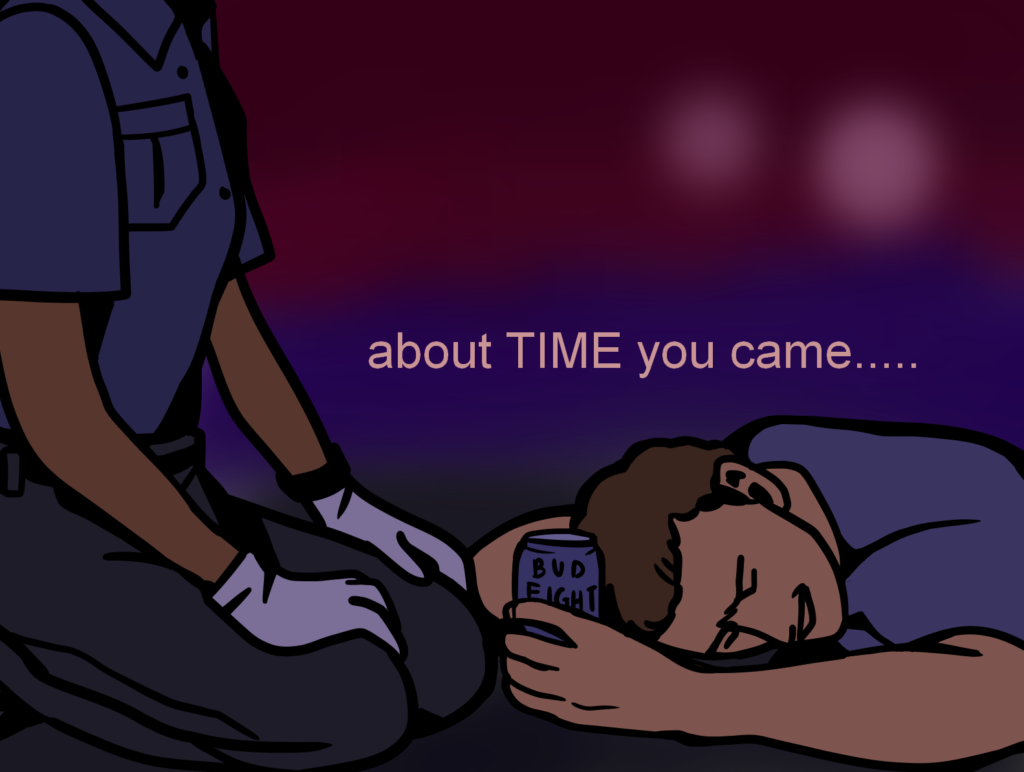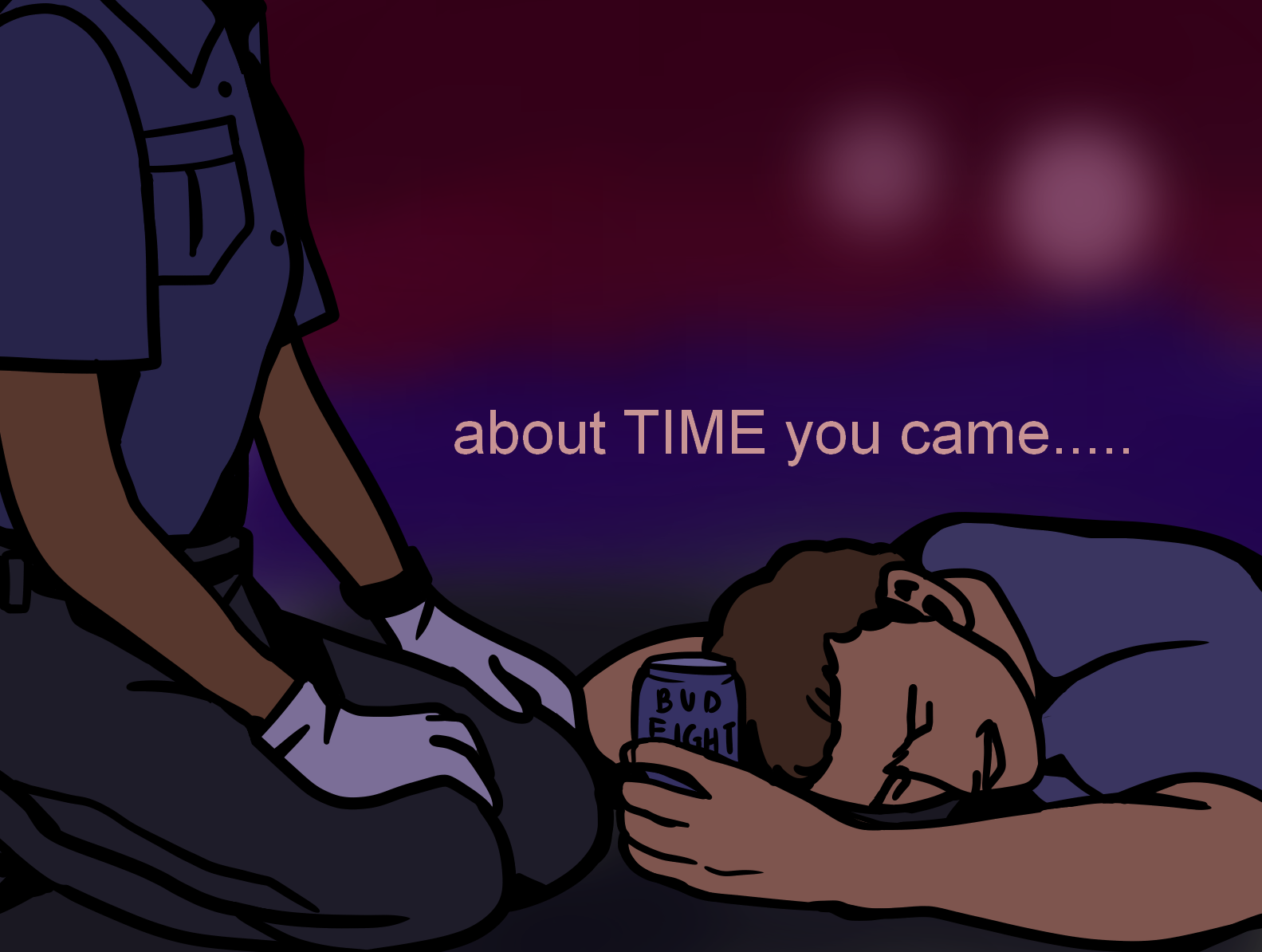Orientation is a haze of new information in which it’s easy to get lost. After a few weeks of class, first-years forget things, like the number for DPS, in search of more immediately practical knowledge, like the names of all of the buildings on the Eastman Quad. But one campus service seems to have made it to the other side of the curtain separating orientation and classroom knowledge, embedding itself in our collective consciousness: MERT, or Medical Emergency Response Team.
After orientation, MERT’s reputation among students — the ones I knew anyway — was on a steep decline.
Because too many people on my floor were MERTed for alcohol poisoning at parties, the Department for Alcohol and Other Drugs Education did a presentation in our lounge, amounting essentially to a repeat of the AlcoholEDU online training.
A few days later, I overheard a student from another hall saying that his floor drinks just as much as ours, but that the people on his floor “aren’t snitches.”
According to the Director of Training for MERT, senior Callie Winters, this perspective is dangerous.
“Sometimes I get real scared about the ways that people view alcohol intoxication,” she said, “not just on this campus, but in general. Particularly the nonchalance with which they look at it.”
She described a commonly-held misconception about alcohol consumption.
“I feel like a lot of people normalize [puking as a] stage of drunkenness. They’ll say, ‘Oh yeah, I vomited X number of times this weekend,’ and I’m like, that’s serious. That can cause very bad permanent effects, it can corrode your esophagus, you can end up aspirating on your own vomit, which can cause horrible things to your lungs and your respiratory tract, it’s painful, and I don’t think that enough people understand that at that point, you’re already in trouble.”
The three MERT members interviewed by CT expressed an interest not only in dispelling rumors about drinking, but in addressing rumors about MERT itself.
“People often think that we’re the drunk police or the drunk catchers,” said Director of Operations and senior Colin Murphy, “that’s really not the case.”
“For some reason,” said Equipment Manager and sophomore Joseph Ricottone, “people think of us as Public Safety officers, who are trying to get them in trouble and all this. They focus more on the possible negative outcomes rather than the whole idea that we’re there to just help them.”
According to MERT’s website, all of their services are free — Winters was careful to clarify this in her interview, saying, “We are just here to help, we’re here for you, the student body.” MERT is free, and the only charge that could be incurred happens if you need an ambulance.
Student opinion surrounding MERT varies, with most appearing to have positive feelings toward the organization. Take Five Scholar Leticia Daruge said, “I see it just as an institution that is here to protect students.”
Other students were more wary of MERT. Sophomore Oishee Rahman said that she would be willing to call MERT for someone else only if they had overdosed on drugs, but would “absolutely not” want someone else to call MERT for her.
MERT is a source of conflicting experiences. Some responders have expressed anger with their treatment at the hands of their patients, albeit anonymously. “To the people who treat MERT and AMR badly:” reads one post on student Facebook group UR Secrets and Confessions, “If we get woken up at 3 am to scrape your drunk ass off of the concrete, I hate to break it to, but you are in fact NOT doing us a favor! You are entitled to quality care and compassion from your EMS providers, you are NOT entitled to abusing us because we show up to your shitty situation. Where do some of you get the idea that you can treat people like this?”
MERT leadership presented a different perspective, expressing empathy for people who lash out in bad situations.
“In EMS,” said Murphy, “we often show up on what is for our patients one of the worst, or closest to the worst, days of their lives. And obviously we don’t expect our patients to be, either, one: of sound mind, or two: in a happy, positive, upbeat mood in those sorts of situations.”
All of MERT leadership seemed eager to dispel students’ apprehensions about calling them.
“The biggest thing that I’d want all students to know about MERT is that as much as there might be other opinions floating around, the people who work in my organization […] they’re all here because they genuinely want to help people,” said Winters.
She later added, “We’re trying to care for you, and we want to advocate for you, and make sure that you’re getting the best care possible.”


